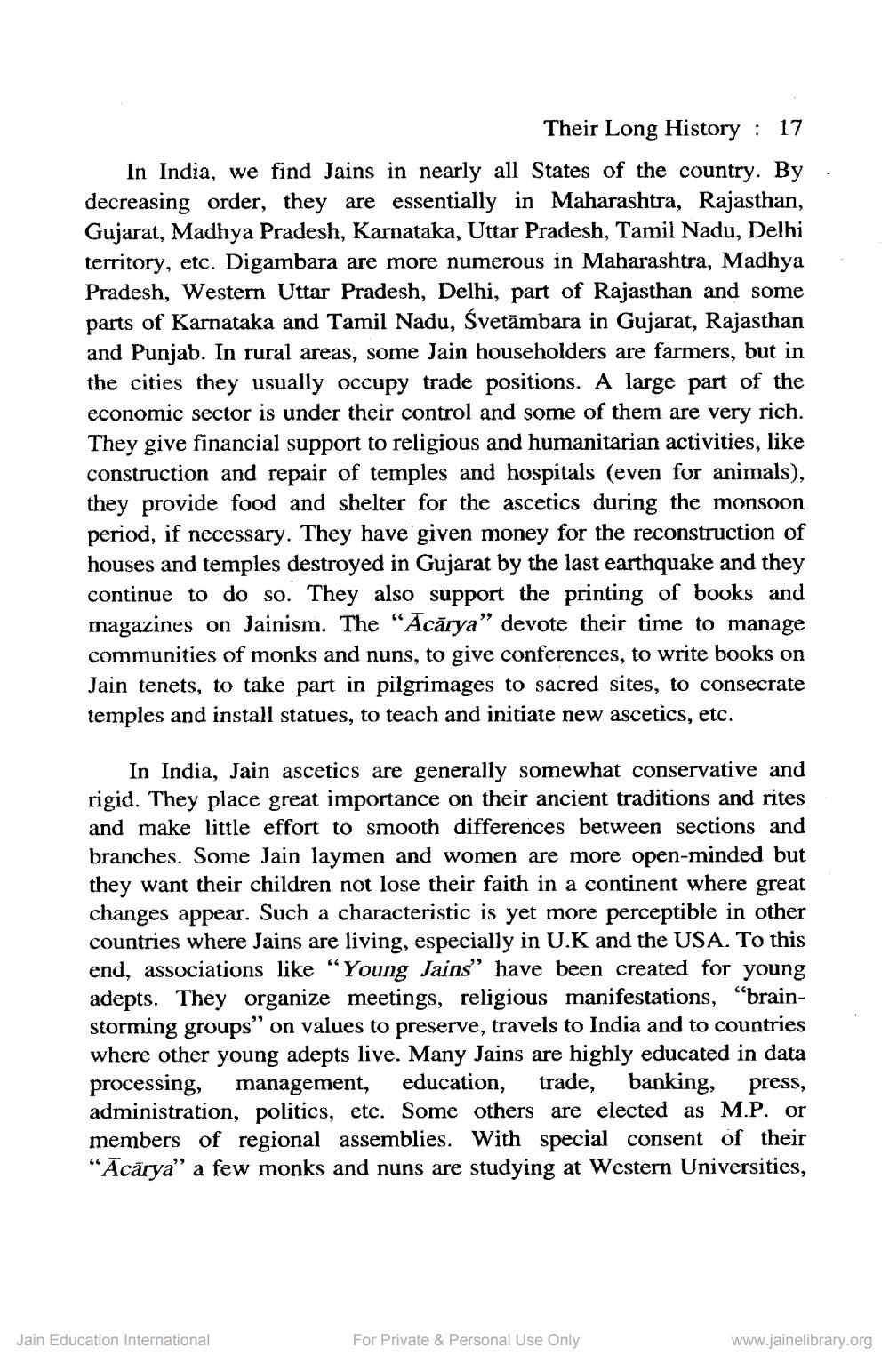________________
Their Long History : 17 In India, we find Jains in nearly all States of the country. By. decreasing order, they are essentially in Maharashtra, Rajasthan, Gujarat, Madhya Pradesh, Karnataka, Uttar Pradesh, Tamil Nadu, Delhi territory, etc. Digambara are more numerous in Maharashtra, Madhya Pradesh, Western Uttar Pradesh, Delhi, part of Rajasthan and some parts of Karnataka and Tamil Nadu, Svetāmbara in Gujarat, Rajasthan and Punjab. In rural areas, some Jain householders are farmers, but in the cities they usually occupy trade positions. A large part of the economic sector is under their control and some of them are very rich. They give financial support to religious and humanitarian activities, like construction and repair of temples and hospitals (even for animals), they provide food and shelter for the ascetics during the monsoon period, if necessary. They have given money for the reconstruction of houses and temples destroyed in Gujarat by the last earthquake and they continue to do so. They also support the printing of books and magazines on Jainism. The “Acārya” devote their time to manage communities of monks and nuns, to give conferences, to write books on Jain tenets, to take part in pilgrimages to sacred sites, to consecrate temples and install statues, to teach and initiate new ascetics, etc.
In India, Jain ascetics are generally somewhat conservative and rigid. They place great importance on their ancient traditions and rites and make little effort to smooth differences between sections and branches. Some Jain laymen and women are more open-minded but they want their children not lose their faith in a continent where great changes appear. Such a characteristic is yet more perceptible in other countries where Jains are living, especially in U.K and the USA. To this end, associations like “Young Jains” have been created for young adepts. They organize meetings, religious manifestations, “brainstorming groups” on values to preserve, travels to India and to countries where other young adepts live. Many Jains are highly educated in data processing, management, education, trade, banking, press, administration, politics, etc. Some others are elected as M.P. or members of regional assemblies. With special consent of their “Acārya" a few monks and nuns are studying at Western Universities,
Jain Education International
For Private & Personal Use Only
www.jainelibrary.org




